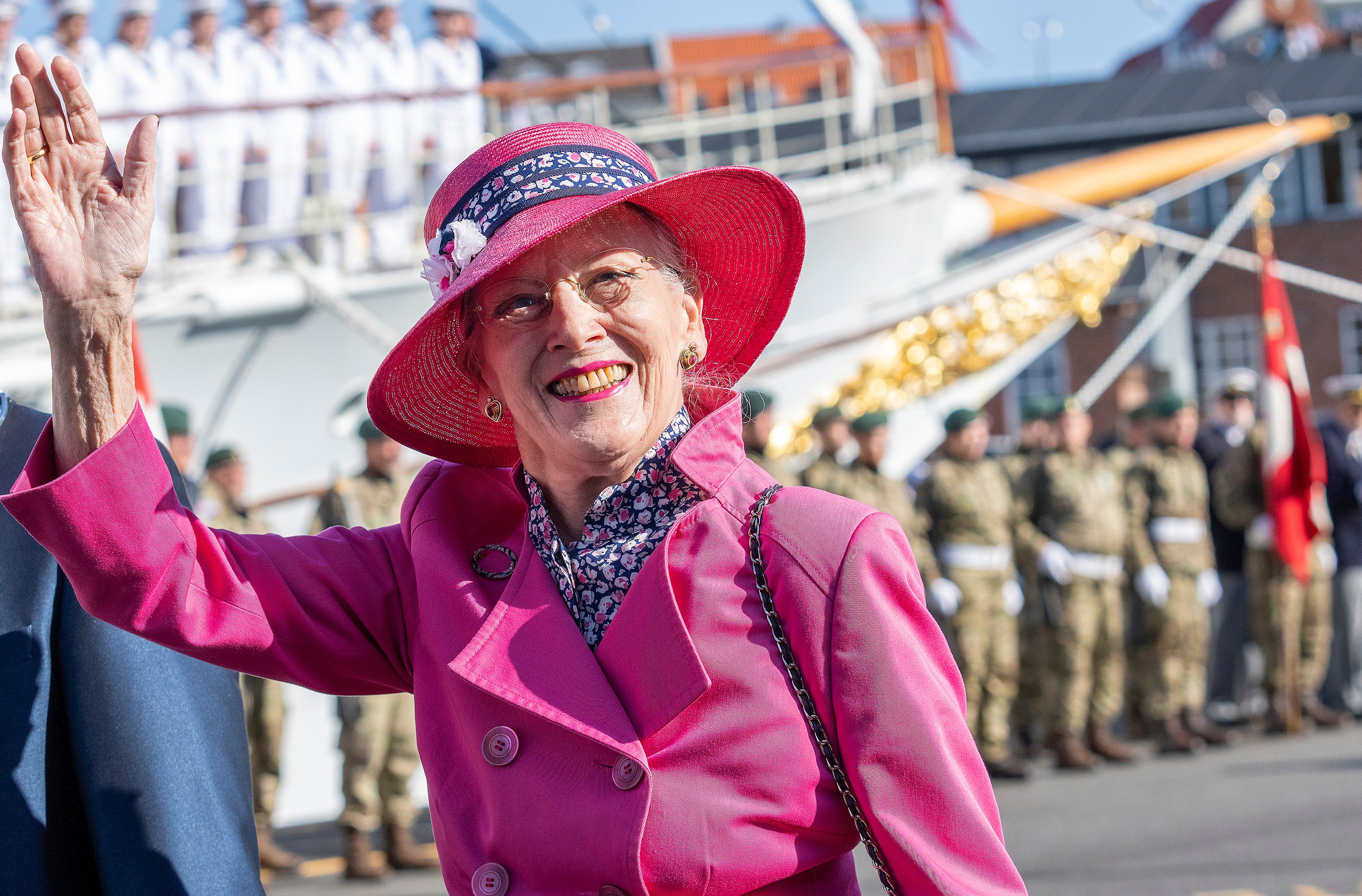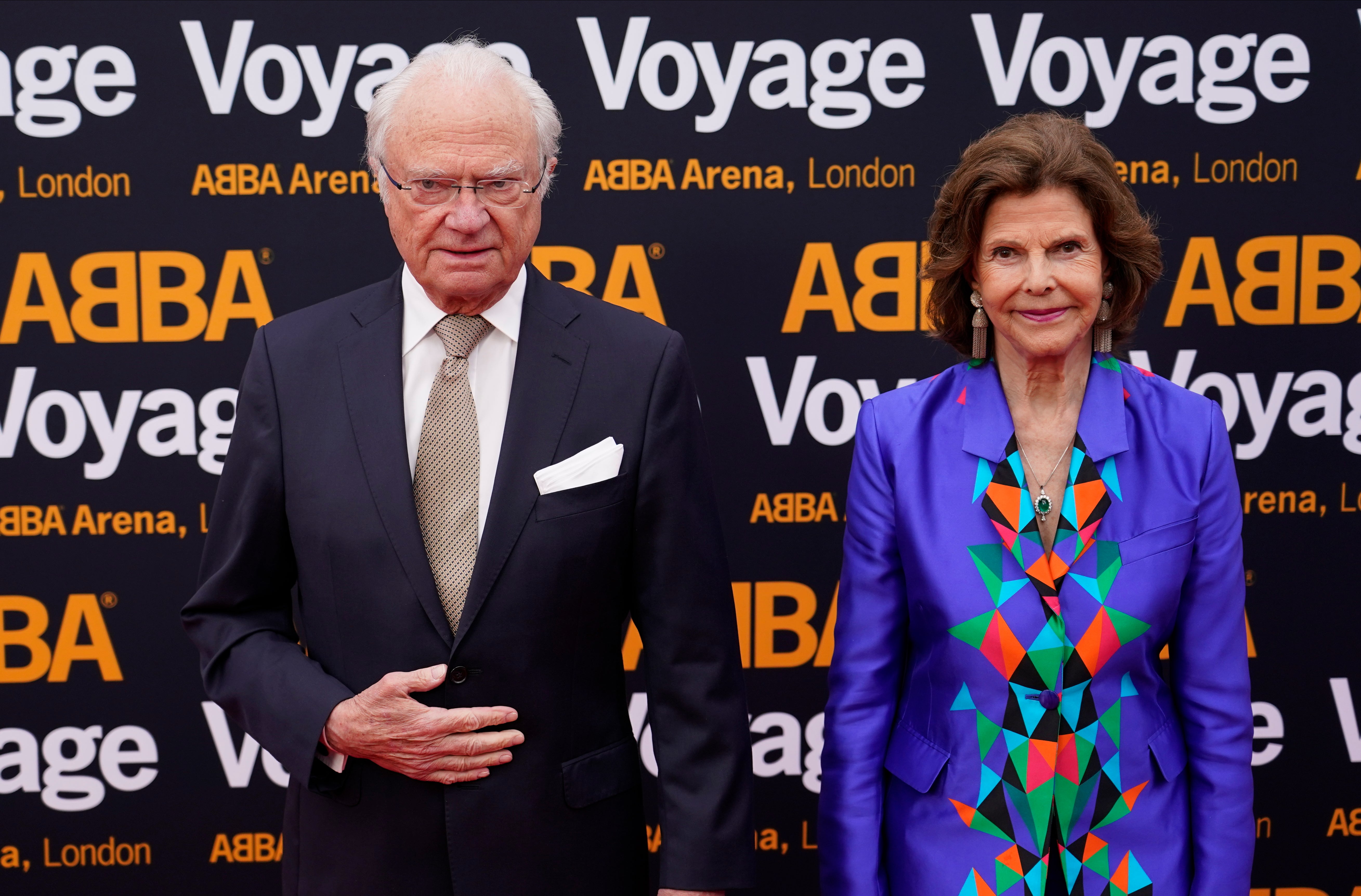Charles III to reign ‘more like a Scandinavian monarchy’
Royal family to be slimmed down and more ‘approachable’, former prime minister predicts

The reign of King Charles III will see Britain’s royalty become “more like a Scandinavian monarchy”, former prime minister Gordon Brown has predicted.
Mr Brown said he expected Charles to perform his duties in a more informal and “approachable” way than his mother Elizabeth II, with a slimmed-down royal family on display.
Like the UK, Sweden, Norway and Denmark are all constitutional monarchies, but their sovereigns have long adopted a less formal style than British queens and kings, with less emphasis on pageantry and ceremony and smaller royal families taking part in official duties.
Another former prime minister Theresa May agreed that the monarchy will evolve under Charles, but said she expected him to make any changes “gradually and very carefully”.
Speaking to Laura Kuenssberg on BBC1’s Sunday, Mr Brown pointed to the King’s decision to meet crowds outside Buckingham Palace to thank them for paying their respects to the Queen, receiving kisses on the cheek and hand from female well-wishers.
“I think what Charles has already indicated is that the royal family is going to be smaller,” said the Labour ex-PM, who served 2007-10. “It’s going to be more like a Scandinavian monarchy in future.
“But not in a bad way, but in the sense of ‘more informal’.
“He stopped as he entered Buckingham Palace and talked to people in the crowd and that was a signal he was sending that he wanted people to feel he was approachable and he was not going to be absent from the public or be unapproachable.”

Mr Brown said he respected the former Prince of Wales’s views on the environment, but believed he would set aside personal interests and charitable work as King “in favour of concentrating 100 per cent on the duties of the monarch, which will involve a huge amount of travelling not just in Britain but across the world”.
He added: “It is a good thing for Britain that we have a monarch who is prepared to be outward-looking, prepared to speak to countries right across the world”.
Ms May, Conservative PM from 2016-19 said: “If you look at the monarchy and the royal family, they have been steadily evolving a different approach, a different way of doing things, over time.
“I’m sure that King Charles will continue to take that forward. And, of course, he is a different person and he may want to change things in some ways.
“But I think critically – as the Queen did – any change in the way things are done would be done gradually and very carefully.”
Ms May said that the public will expect from Charles “a sense of continuity but also that sense of recognising that the world is changing, has been changing, continues to change, and a willingness to evolve alongside that”.
She described the new King as “a very thoughtful individual, but with his mother’s sense of fun as well”.

Another former PM, David Cameron, described Charles III as “extremely intelligent and charming”, revealing that wife Samantha always hoped to be seated near him at official events, saying: “He’s the best person to sit next to, the most charming company.
”While it is incredibly sad that we are mourning the loss of our greatest monarch, I think the constitutional monarchy is in great hands,” Mr Cameron told Kuenssberg.
All of the prime ministers were invited to weekly audiences with the Queen during their time in office, in a tradition that will continue under King Charles. However, none would discuss details of conversations at the meetings, which are conducted on a basis of absolute confidentiality.
Mr Cameron revealed that he also took part in audiences with Charles while the Queen was still alive, as the then Prince of Wales prepared himself for his eventual accession to the throne.
He rejected suggestions that it was inappropriate for the then prince to “meddle” in politics to promote his pet issues.
“I never felt he tried to influence me improperly in any way,” said Mr Cameron. “I think that the heir to the throne has a perfect right to have an interest in issues like the environment and preserving wildlife and the built environment.
“In fact, many of the causes he took up back in the 1960s and 1970s might have looked rather fringe, but he picked his subjects superbly and became an expert in things like climate change and the environment long before politicians were talking about them. I think his pursuit of that was entirely justified.”
Mr Cameron was PM when a ruling by the information tribunal forced the publication of the so-called “black spider memos” sent by Charles as Prince of Wales to government ministers, raising concerns over a wide range of issues.
He defended the future King’s practice of addressing ministers directly in this way: “I think it’s entirely right that the heir to the throne can discuss things with politicians and write them letters and all the rest of it. Why not? I can’t see why there should be any public concern about that.”
Mr Cameron predicted that the new monarch will be “brilliant at that job – brilliant at listening, brilliant at asking questions, giving wise advice and sage counsel”.
“This has probably been the longest apprenticeship in history,” said the Tory ex-PM, who served from 2010-16.
“He knows so much about so many subjects and like his mother he is a superb diplomat. I saw him in action at Commonwealth heads of government meetings, and he knows every leader personally, he interacts with them brilliantly, with the soft power that the British monarch brings to help a prime minister and a government with all these international relations.”
The UK’s six living ex-prime ministers – Brown, Cameron, May, Sir John Major, Sir Tony Blair and Boris Johnson – came together at Saturday’s meeting of the accession council at St James’s Palace, where they were seen talking together as they waited for the formal proclamation that Charles III was the King.
But Mr Cameron said that the “banter” among the six was not about high politics or constitutional affairs, but “the children and grandchildren and those sorts of things”. He joked that “our newest member” – Mr Johnson – may not have been “happy to join the club”.







Join our commenting forum
Join thought-provoking conversations, follow other Independent readers and see their replies
Comments